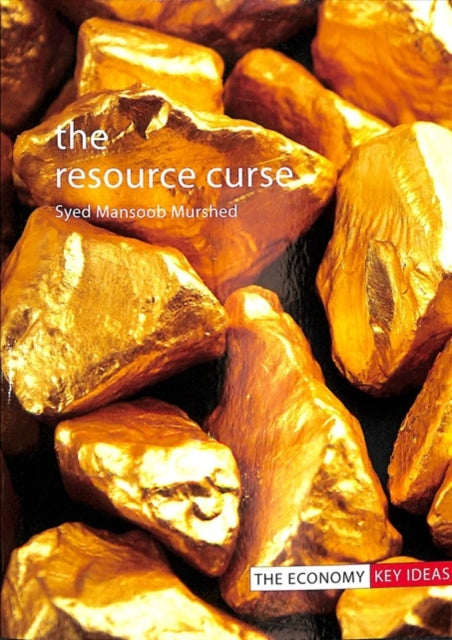Syed MansoobMurshed
Resource Curse
Resource Curse
YOU SAVE £1.06
- Condition: Brand new
- UK Delivery times: Usually arrives within 2 - 3 working days
- UK Shipping: Fee starts at £2.39. Subject to product weight & dimension
Bulk ordering. Want 15 or more copies? Get a personalised quote and bigger discounts. Learn more about bulk orders.
Couldn't load pickup availability
- More about Resource Curse
The resource curse, or paradox of plenty, states that countries with abundant natural resources, such as minerals and fuels, tend to have less economic growth than countries with fewer resources. This idea explores the complexities of resource booms, export-led growth, deindustrialization, rent-seeking behavior, corruption, and the empirical evidence of resource dependence on growth. It also considers the links between resource rents and the risk of conflict and civil war.
Format: Paperback / softback
Length: 168 pages
Publication date: 21 December 2020
Publisher: Agenda Publishing
The resource curse, also known as the paradox of plenty, is a well-established notion in development economics that suggests that countries with abundant natural resources, particularly minerals and fuels, tend to experience less economic growth compared to countries with fewer resources. In simpler terms, resources are often seen as an economic burden rather than a blessing. This brief primer aims to delve into the complexities of this concept and the ongoing debates surrounding it. Specifically, it examines the conditions under which the resource curse might manifest, if not universally. The discussion spans various aspects, including the nature of resource booms, the benefits and costs of export-led growth, the challenges of deindustrialization and manufacturing base erosion, rent-seeking behavior and corruption, and the empirical evidence regarding the effects of natural resource dependence on growth. Additionally, the book explores the connections between resource rents and the risk of conflict and civil war. Throughout the treatment, a wide range of illustrative examples from both developed and developing countries are used to provide insights and offer an authoritative introduction to this perplexing issue of economic growth.
The resource curse, also known as the paradox of plenty, is a well-established notion in development economics that suggests that countries with abundant natural resources, particularly minerals and fuels, tend to experience less economic growth compared to countries with fewer resources. In simpler terms, resources are often seen as an economic burden rather than a blessing. This brief primer aims to delve into the complexities of this concept and the ongoing debates surrounding it. Specifically, it examines the conditions under which the resource curse might manifest, if not universally. The discussion spans various aspects, including the nature of resource booms, the benefits and costs of export-led growth, the challenges of deindustrialization and manufacturing base erosion, rent-seeking behavior and corruption, and the empirical evidence regarding the effects of natural resource dependence on growth. Additionally, the book explores the connections between resource rents and the risk of conflict and civil war. Throughout the treatment, a wide range of illustrative examples from both developed and developing countries are used to provide insights and offer an authoritative introduction to this perplexing issue of economic growth.
Weight: 234g
Dimension: 150 x 209 x 11 (mm)
ISBN-13: 9781911116493
This item can be found in:
UK and International shipping information
UK and International shipping information
UK Delivery and returns information:
- Delivery within 2 - 3 days when ordering in the UK.
- Shipping fee for UK customers from £2.39. Fully tracked shipping service available.
- Returns policy: Return within 30 days of receipt for full refund.
International deliveries:
Shulph Ink now ships to Australia, Belgium, Canada, France, Germany, Ireland, Italy, India, Luxembourg Saudi Arabia, Singapore, Spain, Netherlands, New Zealand, United Arab Emirates, United States of America.
- Delivery times: within 5 - 10 days for international orders.
- Shipping fee: charges vary for overseas orders. Only tracked services are available for most international orders. Some countries have untracked shipping options.
- Customs charges: If ordering to addresses outside the United Kingdom, you may or may not incur additional customs and duties fees during local delivery.


